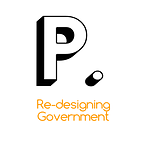Free To Be Online: How We Are Engaging Facebook, Instagram and WhatsApp for Safer Spaces Online
Background
“Violence is a fact of life for women.”
This short but saddening statement comes from Bailey Poland’s book on online Gender-Based Violence (OGBV), “Haters and Harassment.” And the truth is, for women and girls worldwide, violence is part of their life as 1 in 3 women have/will experience some form of GBV in their lifetime(WHO, 2017). This violence does not just remain offline but is replicated into online spaces and amplified by technology. A study conducted by Pollicy in 5 Sub Saharan African countries amongst 3,306 women found that 28% of them had experienced some form of online harassment. And while women experience harassment and violence online, it is important to acknowledge that girls and younger women experience OGBV disproportionately. A study conducted by Plan International involving 14000 girls across 31 countries confirms this, as 58% of the respondents reported experiencing abuse and harassment in online spaces. Furthermore, the study found that 1 out of every 4 girls who had been abused online felt physically unsafe. This alarming phenomenon is why the alliance between Plan International and the Facebook platforms against OGBV was formed.
The Sessions
Since November 2020, I, alongside 4 other Civil Society Organization representatives and ten girl and trans activists, have been engaging with Facebook, Instagram, and WhatsApp policy teams on OGBV amongst girls and young women. From November 2020 to January 2021, we leaned into our experiences to co-create possible ways that the platforms could deal with OGBV. The scope of discussions was split into 3 categories: content moderation, community guidelines, and reporting mechanisms. These are the areas we felt that needed more attention to make the platforms safer for young women and girls.
The sessions, which Plan International officials moderated, were a great opportunity for us to air out platform shortcomings when dealing with OGBV, especially regarding our contexts. I, for one, was particularly concerned about the gaps in content moderation. For instance, while automated content moderation is used extensively to regulate online conversations, it is limited in African contexts because of the limited number of African languages included in these systems(Pollicy, 2020). In addition, moderation of political issues such as ethnic hate speech is prioritized over moderation of sexist content. Other concerns we had were that reporting was too tedious, and often girls did not know that they could even report incidences of abuse and harassment in the first place. It was also quite concerning to members of the group that the social media policies that could help the millions of girls online are tucked away in complex policy documents. We realised this after learning about Facebook, Instagram, and WhatsApp’s tools to enhance girls’ safety online. While the measures are well thought out, they are not publicized widely and presented in a manner accessible to the millions of girls on social media. These sessions’ goal was to eventually develop a comprehensive wishlist spelling out the steps we would like to see Facebook, Instagram, and WhatsApp take to make their platforms safer. To ensure our wishlist was as inclusive as possible, we also sent surveys to our networks to gather the opinions of a more diverse group of people using these social media platforms.
At the end of January, we finally presented our wishlist, “Free To Be Online: Girls’ Vision for Change” which listed 10 changes we wanted the platforms to prioritize. This wishlist will be made public to everyone by Plan International after April. While Facebook, Instagram, and WhatsApp were all enthusiastic about exploring and enacting the changes suggested, they will get back to the working group in April with an official statement on the changes they will make.
It was refreshing to see a multi-generational gathering that centred the youngest members of the group as experts and actively listened to what they were saying. Another huge plus was having the key decision-makers at these platforms present at the sessions, and as a result, we felt like our concerns would not end up shelved after we wrapped up the sessions. However, one downside was that even in demanding change by the platforms, we had to craft our language in a way that would not offend or put off Facebook executives who would ultimately receive the wish list. We could not use a term like ‘demands’ as it would sound harsh. It seemed ironic that even in the crisis of OGBV, social media platforms still felt the need to police the tone we used in addressing their shortcomings. Ultimately, we are looking forward to seeing the impact these sessions will have on women and girls worldwide.
References
- Pollicy, Iyer, N., Bonnita Nyamwire, B., & Nabulega, S. (2020, August). Alternate realities, alternate internets: African feminist research for a feminist internet. Pollicy. https://www.apc.org/en/pubs/alternate-realities-alternate-internets-african-feminist-research-feminist-internet
- WHO. (2017, November 30). Violence against women. Retrieved from https://www.who.int/news-room/fact-sheets/detail/violence-against-women
Written by Garnett Achieng, Researcher on Data and Digital Rights at Pollicy
